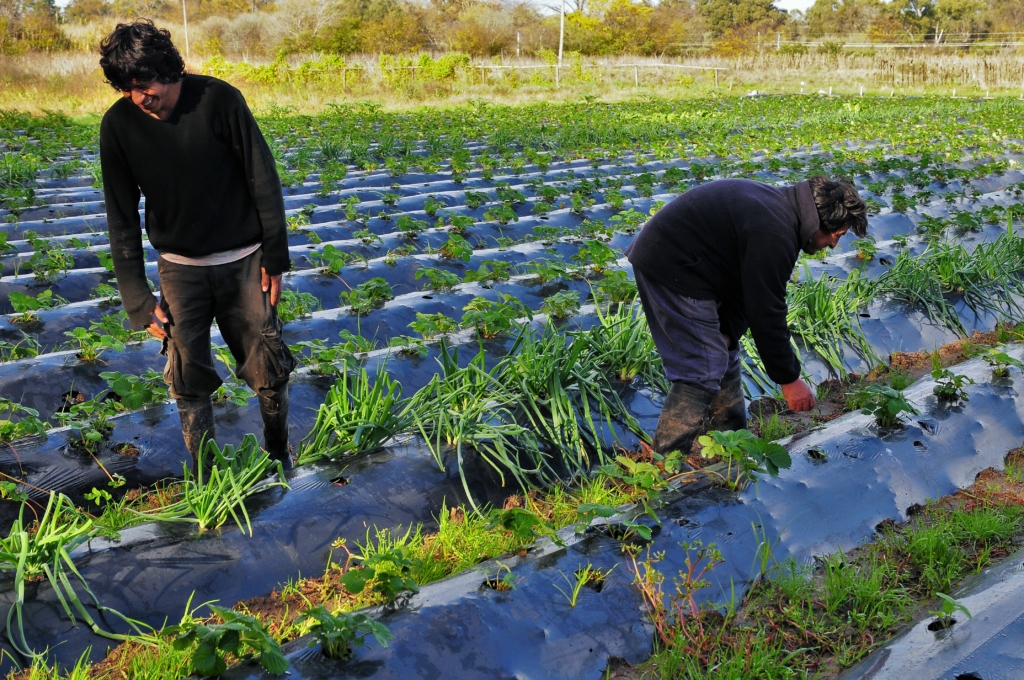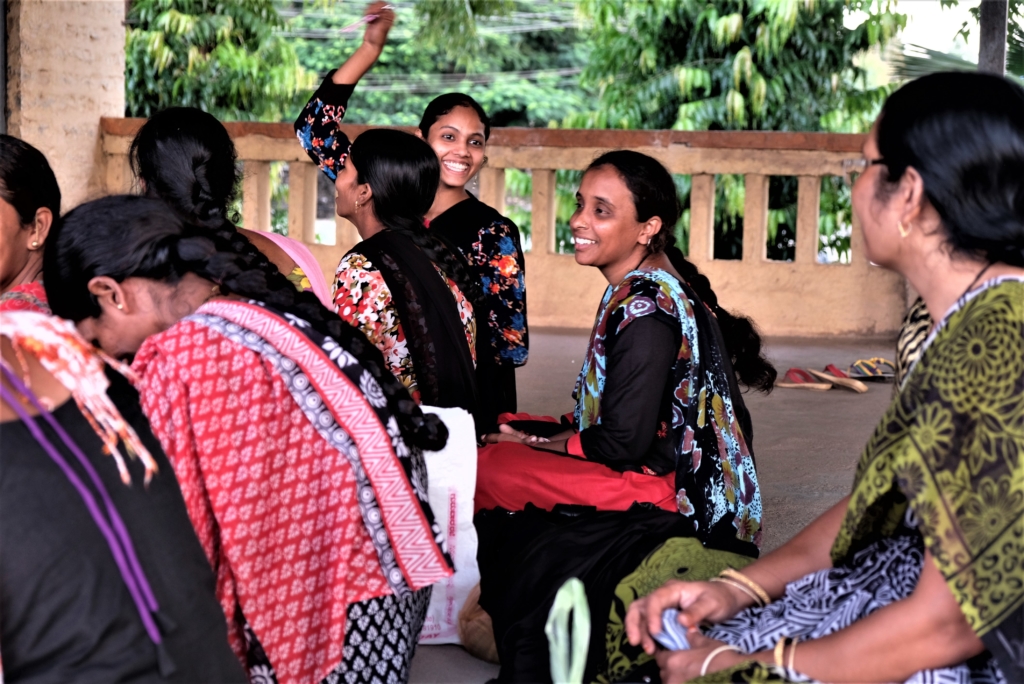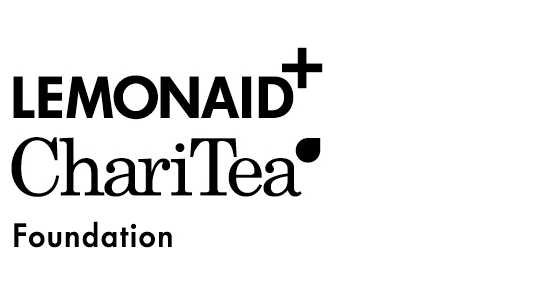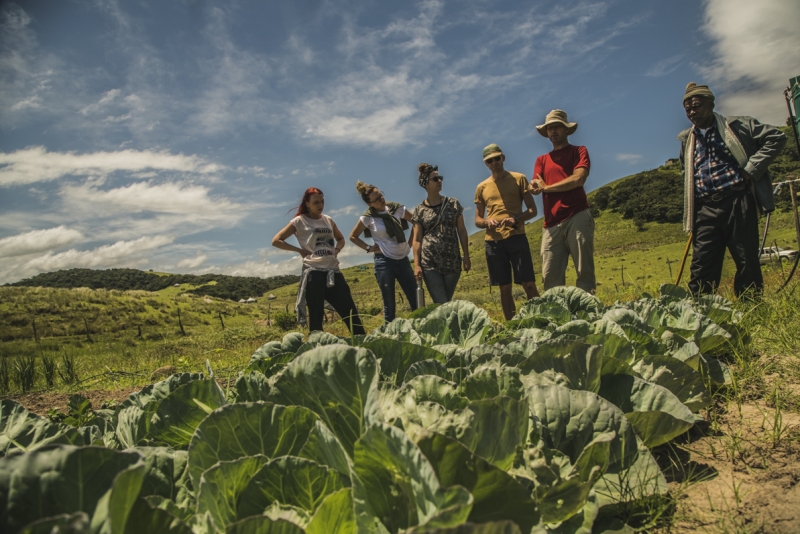For almost ten years the Lemonaid & ChariTea Foundation has been supporting local organisations in the countries where the ingredients of the lemonades and teas are grown. These organisations contribute to the socio-economic development of their communities through various projects. Our main focus are long-term partnerships. Thus, most of the organisations have been funded over a period of three years, which is our maximum funding period for a project. This time period allows our project partners, accompanied by a regular and trustful exchange, to plan and implement extensive projects in order to achieve sustainable positive changes. Over the past few months, the support for many of our projects that we started in 2017 has expired. At this point we would like to report on the great impact and results of some of these projects.
In order to promote sustainable, self-determined and independent livelihoods in the countries where the ingredients are grown, we focus on supporting local NGOs in the areas of income generation, financial participation and entrepreneurship. A good example of income generation is the Bulungula Incubator in the Eastern Cape of South Africa, which was supported by the Lemonaid & ChariTea Foundation from 2017 to 2020. With the aim of improving the living conditions of this historically (the region was “homeland” during Apartheid) and also climatically structurally very disadvantaged region, the project pursues different approaches: First of all, Bulungula operates a comprehensive competence centre. It provides small-scale farmers with know-how about agricultural cultivation, irrigation methods as well as seeds, fertilisers and farming equipment. In addition, the institution is in charge of a seedling nursery, which has already served as a model and inspiration for other partner organisations such as Nceduluntu in their seedling nursery project. Cabbage, beetroot, spinach and onion seedlings were sold to local farmers at affordable prices. In total, annual sales quadrupled to over 70,000 seedlings in 2019. With this development, Bulungula is making a major contribution to the region’s food security.
With the aim of generating income for farmers, a cooperative approach between Bulungula Centre and small-scale farmers has been established for the sale of beetroot: The farmers receive a fair price for their vegetables from the Centre, where the beets are then pickled, processed into salad and sold profitably throughout the region. Here, customer demand has risen steadily too, so that a total of eight farmers (mostly women) now supply the Bulungula Centre. About a year ago, the managers of the incubator approached us with an accompanying project part according to lessons learned in the progress. This meant that the potential of commercial agriculture in the region should be demonstrated by means of a model. Financially supported by our Foundation, they paid scholarships for half a year to a group of four particularly motivated farmers and gave them additional intensive advice on agricultural practices, for example, which crops would be most economically viable. The idea was to establish successful commercial farming projects which would serves a role model to other local farmers. The first results were really promising. Three of the four participants were able to significantly increase their income through a very successful first harvest. However, as the project progressed, it proved difficult to convince the farmers of the idea of commercial farming in the long term. There were several reasons for this, among ongoing heavy rainfall at the end of 2019 and an immense loss of harvest, which led to a loss of confidence in making an income through agricultural practices. Nevertheless, Bulungula has not yet given up hope: Next time, they want to give twelve farmers an understanding of the great potential of commercial agriculture in another scholarship programme and strengthen the supply of food in the region.

Great demand for organic farming seminars
Projects aimed at generating income, like the Bulungula Incubator, almost always go hand in hand with extensive educational programmes. These often give local communities the opportunity to practice certain professions or to take specialisation steps. For example, the processing of raw materials into higher quality products, which in turn increases local value creation. Training and further education are therefore another focus of our project funding. One example of this is the non-profit organisation Cedepo from Argentina, which we also supported from 2017 to 2019. In many ways, they follow a similar approach as the Bulungula Incubator. Cedepo operates an agricultural training centre near the capital Buenos Aires. Apart from educational offers for local farmers to switch from conventional to biodynamic agriculture, there are also consulting services on market access strategies, product diversification and seed production. The educational programme of the last few years has been a huge success. With a total of 368 participants, the demand was much higher than originally planned and there are still waiting lists for new workshops.
However, there were also problems in the project implementation. Due to the high inflation rate in Argentina of over 50 percent in 2019, it was impossible for families to improve their income. In the area of seed production, six different producer groups for seeds were established, which now produce a total of 24 (instead of seven as originally planned) high-quality seed varieties and sell them through Cedepo. For disadvantaged families, Cedepo provided seed packages of 12-14 different varieties free of charge, enabling them to grow enough seeds at least for their own consumption in a period of economic instability. Through its contribution to strengthening food security and biodiversity in the region, Cedepo has established itself as a very important part of the local community at many levels.

Indigo creates colourful income opportunities
Many of the projects we support – especially in the agricultural sector – are organised in so-called cooperatives. One example is the non-profit organisation Avani, based in the Indian Himalayas. Avani has been supported by us for the last three years. A main part of the organisation is the cooperative Earthcraft, which aims to add value to the natural resources and traditional skills of the Kumaon region, thereby creating job opportunities for rural communities. They pursue the concept of keeping as much as possible of the value chain and thus also the revenues in the region. Local farmers can sell agricultural products such as turmeric or walnuts to the cooperative at fair prices. Earthcraft supports them in technical matters regarding their cultivation practices. Another part of the project was the training of artisans. Through the cooperative they have found employment and now produce high quality textiles such as linen, wool and silk, but also cosmetics, using traditional methods. Earthcraft itself took care of the sale of the goods through various distribution channels in national and international markets.
An important goal of the last years was to increase the turnover in order to create a regular income for the farmers and artisans. And they have succeeded: The number of suppliers and employees grew from 1.400 to 2.200. Furthermore, through its innovative approach, the organisation managed to establish the production of the natural dye indigo in the region. Together with local farmers, they selected – in a long process involving many experiments and tests – three different indigo varieties that are particularly well suited to local conditions. Today, a total of 300 farmers supply the cooperative with indigo and thus earn an additional income. The artisans of the cooperative have also been able to expand their portfolio in the last three years: They have developed some new products such as six different natural dyes, soap nut (powder), crayons as well as water and oil paints. Avani is particularly committed to helping marginalised groups with their projects. For this reason, the majority of project participants in the past funding period were women, many of whom have little or no education, are destitute or widowed.
Local farmers can sell agricultural products such as turmeric or walnuts to the cooperative at fair prices. Earthcraft supports them in technical matters regarding their cultivation practices. Another part of the project was the training of artisans. Through the cooperative they have found employment and now produce high quality textiles such as linen, wool and silk, but also cosmetics, using traditional methods. Earthcraft itself took care of the sale of the goods through various distribution channels in national and international markets. An important goal of the last years was to increase the turnover in order to create a regular income for the farmers and artisans. And they have succeeded: The number of suppliers and employees grew from 1.400 to 2.200. Furthermore, through its innovative approach, the organisation managed to establish the production of the natural dye indigo in the region. Together with local farmers, they selected – in a long process involving many experiments and tests – three different indigo varieties that are particularly well suited to local conditions. Today, a total of 300 farmers supply the cooperative with indigo and thus earn an additional income. The artisans of the cooperative have also been able to expand their portfolio in the last three years: They have developed some new products such as six different natural dyes, soap nut (powder), crayons as well as water and oil paints. Avani is particularly committed to helping marginalised groups with their projects. For this reason, the majority of project participants in the past funding period were women, many of whom have little or no education, are destitute or widowed.
Empowerment of Indian women – especially in times of crisis
The non-profit organisation Jyothi Seva Kendra Trust in southern India also contributes significantly to a gender equal society. Its aim is to reduce poverty and related problems and causes such as unemployment and malnutrition in rural areas of the southern Indian state of Karnataka, with a clear focus on the emancipation of women. In their educational centre, they have trained a large number of disadvantaged women as seamstresses or beauticians and have provided them with appropriate certificates over the past three years. After completing the training, the centre directly employed 19 of the women, while others were supported by Jyothi in becoming self-employed according to their wishes. For this purpose, a total of 45 women received micro-credits from Jyothi over the last three years, which they invested mainly in their own businesses and in the education of their children. All loans have now been fully repaid. Jyothi also puts great emphasis on a holistic education for the women. In India, this also includes a very good knowledge of English. For this reason, the project participants received intensive English lessons, as a result of which they can now communicate fluently in English.
In addition to the professional training and fair payment of the women, the institution also contributed in other ways to the emancipation and empowerment of the women: The Jyothi Centre offers them a safe space, i.e. a place in which they can move around safely and exchange with other women. This exchange took place mainly in small, fixed groups in which strong, trusting bonds have grown over the years. These offers were very well received by the women and were used a lot. Furthermore, the women’s regular income and the associated financial independence have significantly strengthened their positions within the families and thus their decision-making power. This was often accompanied by a noticeable increase in the self-confidence and self-awareness of the project participants. As a result, many of the participating mothers decided to enable their children, especially their daughters, to have a higher education instead of marrying them at a young age. Due to the Corona pandemic, many of these aspects had to be paused. As a consequence of the lockdown, most of the physical meetings and training sessions could not take place for the time being. Instead, alternative possibilities were established to support the project participants and provide them with a fixed income from home. With the “Masks for Chittapur” campaign, where self-produced masks could be purchased virtually in Germany via the online shop of Jyoti Fair Works, which were then distributed to the local community and hospitals in India. Together with the seamstresses, Jyoti Fair Works also organised a “Zero-Waste Design Challenge”. From home, the women make beautiful hand-embroidered blankets from their best fabric remnants. These very elaborate blankets are now sold through the online shop, so that the institution was able to pay the seamstresses’ salaries throughout the entire lockdown period.
Income-generating projects, in combination with vocational training and further education offers, can contribute in many ways to strengthening a region socially and economically. At the same time, our project partners operate under volatile conditions which can have an immense impact on the success of the projects. Therefore, it is even more important that the organisations and we as a donor organisation react flexibly to the changing conditions in the project context such as inflation or persistent drought. Furthermore, this situation shows how well trained our project partners are in dealing with these uncertainties and that they themselves know best how to deal with them in the local context. With adapted solutions, sustainable local value creation and fair access to regional and (inter)national markets can offer many people an independent, self-determined livelihood. This can contribute not only to less poverty, improved food security and higher educational opportunities, but often also to more gender equality and greater resilience to the devastating effects of the climate crisis and economic uncertainties.




